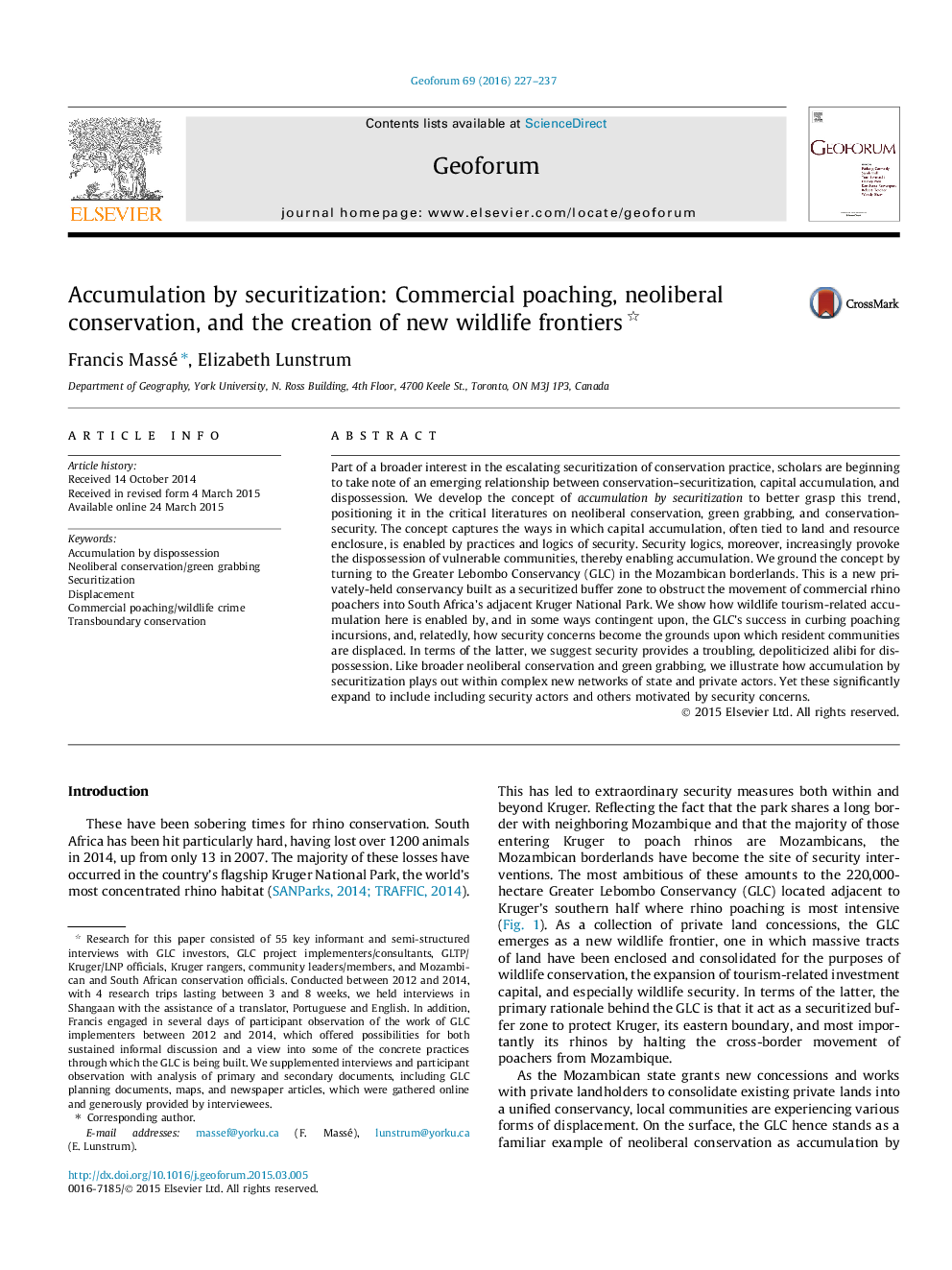| Article ID | Journal | Published Year | Pages | File Type |
|---|---|---|---|---|
| 5073643 | Geoforum | 2016 | 11 Pages |
â¢We develop the concept of accumulation by securitization.â¢We analyze the relation between conservation, security and neoliberal accumulation.â¢Conservation-related accumulation is enabled by processes of securitization.â¢Securitization enables the creation of new (neoliberal) wildlife frontiers.â¢Conservation-security provides a de-politicized alibi for dispossession.
Part of a broader interest in the escalating securitization of conservation practice, scholars are beginning to take note of an emerging relationship between conservation-securitization, capital accumulation, and dispossession. We develop the concept of accumulation by securitization to better grasp this trend, positioning it in the critical literatures on neoliberal conservation, green grabbing, and conservation-security. The concept captures the ways in which capital accumulation, often tied to land and resource enclosure, is enabled by practices and logics of security. Security logics, moreover, increasingly provoke the dispossession of vulnerable communities, thereby enabling accumulation. We ground the concept by turning to the Greater Lebombo Conservancy (GLC) in the Mozambican borderlands. This is a new privately-held conservancy built as a securitized buffer zone to obstruct the movement of commercial rhino poachers into South Africa's adjacent Kruger National Park. We show how wildlife tourism-related accumulation here is enabled by, and in some ways contingent upon, the GLC's success in curbing poaching incursions, and, relatedly, how security concerns become the grounds upon which resident communities are displaced. In terms of the latter, we suggest security provides a troubling, depoliticized alibi for dispossession. Like broader neoliberal conservation and green grabbing, we illustrate how accumulation by securitization plays out within complex new networks of state and private actors. Yet these significantly expand to include including security actors and others motivated by security concerns.
